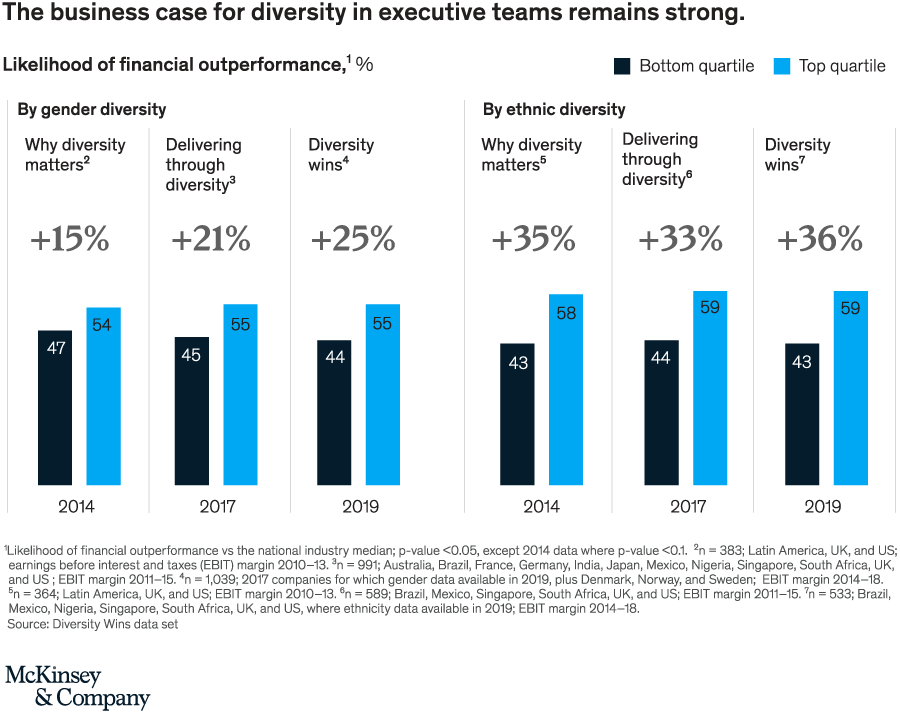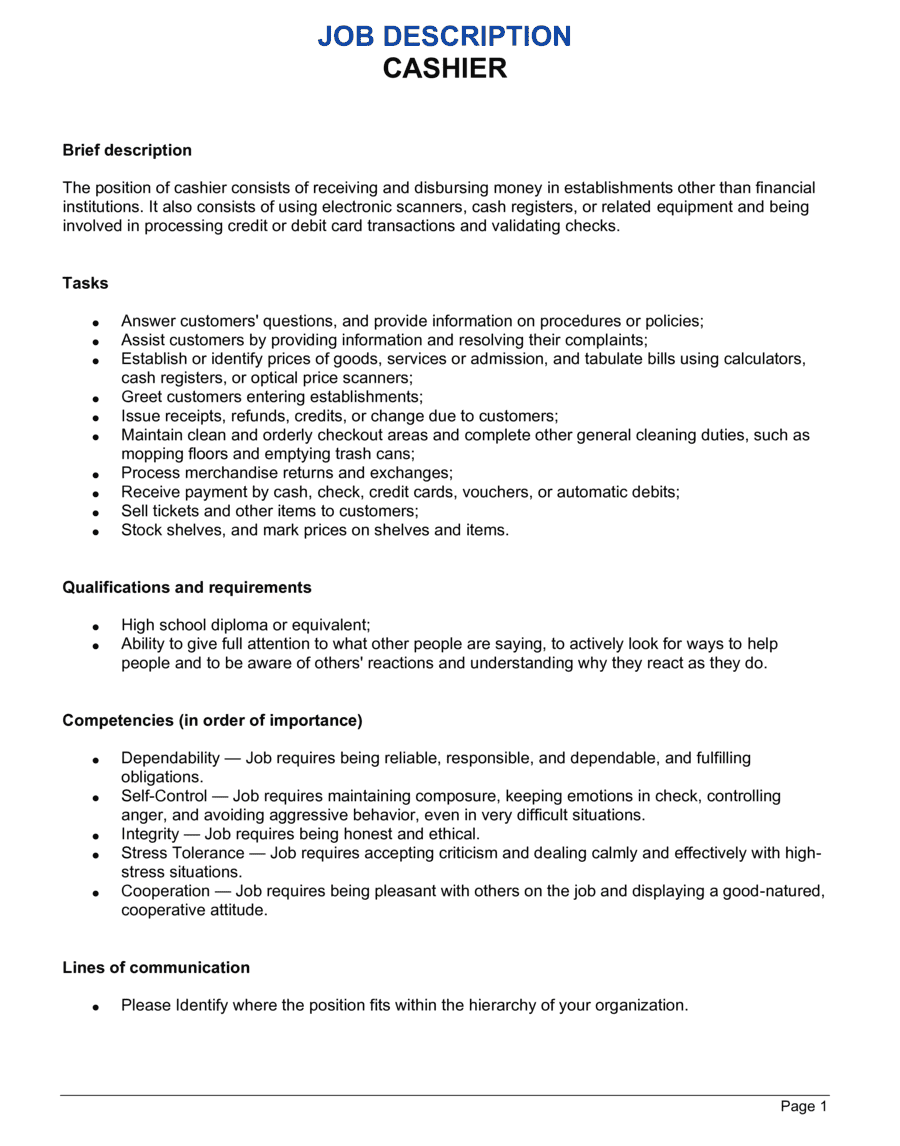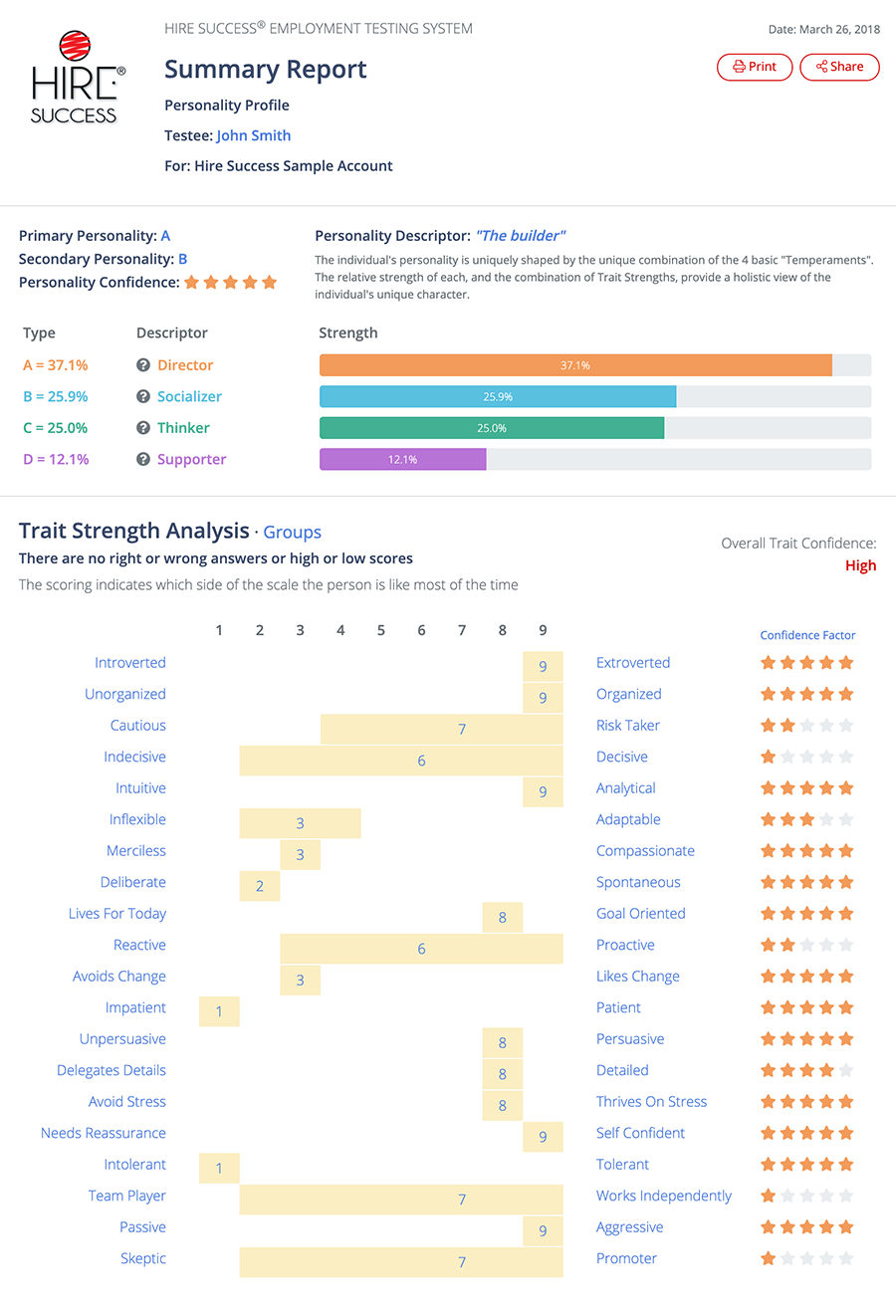3 Reasons Personality Diversity Matters
in an Organization
See also: Interpersonal Skills Self-Assessment
For many organizations, diversity in the workplace is becoming a necessary component of company culture rather than a compliance box to check. The individual differences that make workers unique shape their contribution to the organization, allowing companies to reach new or unrealized potential.
Workplace diversity does more than improve brand reputation. There are tangible benefits that impact the bottom line. Studies have found links between diversity and financial performance.

A 2019 study revealed that companies in the top quartile for gender and ethnic diversity were 25% and 36% more profitable than companies in the bottom quartile.
But gender and ethnicity aren’t the only forms of diversity. There’s multigenerational diversity and personality diversity. This article will look at personality diversity.
No two people are alike. Sometimes this leads to misunderstandings and clashes of personalities, but it doesn’t have to. Effective managers appreciate different personality types and use them to balance the strengths and weaknesses of teams.
Here are reasons why having a personality-diverse workforce matters.
1. Offers Differences in Perspectives
People see the world in different ways. Consider this proverbial question: is the glass half full or half empty? There’s no right or wrong answer, only a difference in perspective.
Personality diversity in the workforce gives your organization access to various perspectives. Having different viewpoints is invaluable to problem-solving. You need big-picture thinkers to push boundaries and generate new ideas. You also need detail-oriented people to nail down specifics and keep business goals on track.
Groups with the same mindset offer similar solutions to problems. To remain competitive, you need various personalities to respond to challenges effectively.
Diversity of personality not only improves problem-solving but gives better insight into customers. Chances are your customers aren’t homogeneous. They may share your product or service, but their behaviors and preferences differ. When you diversify your workplace, you can assess your customers better and gain insight into their expectations. This helps you come up with better products, marketing strategies, and customer support.
2. Increases Engagement and Productivity
The hiring process is more than matching skills with roles. It requires finding candidates that fit your corporate culture. As a result, recruiters tend to hire people similar to them. The problem with hiring the same type of candidate is that some employees will be ill-suited to their roles.
An outgoing worker’s strength is connecting and talking to people, while an analytical person works well with data. Both these individual strengths are beneficial, but if you assign an analyst personality to a customer-facing role, they will become frustrated and disengaged. That will lead to a drop in performance and productivity.
To avoid scenarios like this, HR can include behavioral tendencies in job descriptions, like ‘must be a team player,’ etc.
Take a look at this:

The job description above lists several personality traits needed for the position. They include emotional composure, reliability, and good-naturedness.
We know that hiring for gender and ethnic diversity creates dynamic workplaces. The same applies to personality diversity. What about productivity?
While homogeneous teams simplify employee motivation and conflict resolution, it may harm productivity. For instance, creative teams aren’t likely to pay attention to project finances. Adding a realist ensures the creative process stays within the budget.
This can happen across so many projects. Do the ambitious team members in your marketing department want to explore a new technique? Having a realist on the team would help keep things within budget.
The HR and executive team want to revamp the workplace. A realist would help in coming up with a middle ground between wild and sensible. This saves not just the initial costs but recurring ones.
For example, they can come up with office renovation ideas that would help to minimize repairs and save energy in your workplace. That way, you’ll spend less on things like commercial fridge repairs and energy expenses, all while giving your workforce the nice accessories they need to thrive.
Having employees fill out a personality questionnaire will help you identify personality gaps in your workforce. You can use free online personality assessments like 16 Personalities, invest in recruitment software like Hire Success with testing features, or create your own.
Check out the questionnaire example below.

Personality traits are scored on a scale from one to nine. The questionnaire measures motivation, conscientiousness, achievement, and other personality dimensions.
3. Develops Empathy
Recruiting for a diversity of personalities means increased opportunities to develop empathy. How?
Since different people with different personalities interact with one another in the workplace, they get to understand each other. Empathy is recognizing and understanding another person’s feelings and perspectives and involves sharing emotions. The key aspects of empathy are listening, openness, and understanding.
To be productive in a diversified work environment, you need empathy. The business impact of empathy is growing every year with new generations entering the workforce. Almost 83% of Gen Z employees would choose an organization with a strong culture of empathy over a company with less empathy but with slightly higher pay.
In the workplace, empathy helps employees communicate and collaborate effectively. It supports conflict resolution and improves relationships with colleagues. Other benefits of nurturing empathy include the following:
Improves customer experience - Empathy with colleagues is often extended to customers. When your staff can think from the customers’ point of view, you can provide stellar service.
Improves leadership - Empathizing with employees helps managers inspire them to perform better.
Ultimately, an increase in empathy drives sales. Because of your excellent customer service, people are more likely to buy and stay with your business. When employees like sales personnel are motivated by empathetic leadership, they can generate more sales.
Empathizing with customers also enables you to think from their point of view. With this insight, you deliver better customer experiences and drive sales.
In Closing
The workplace is a microcosm of society. A mix of personalities in the workplace reflects your customer base, leading to better insights into their wants and needs.
It allows you to make better business decisions based on varied perspectives. It also creates an empathetic environment that nurtures employees to be more engaged and productive. Empathy also directs your approach to customer experience.
Improving personality diversity in your organization takes time. It may require a shift in recruitment processes and company culture, but hopefully, we’ve shown you that the results are worth the effort.
About the Author
James Rob is a valued member of the content team at National Appliance Repairs. With a keen eye for detail, James ensures readers receive accurate and helpful information. When he's not working, James enjoys exploring technology advancements and spending time with his family.
